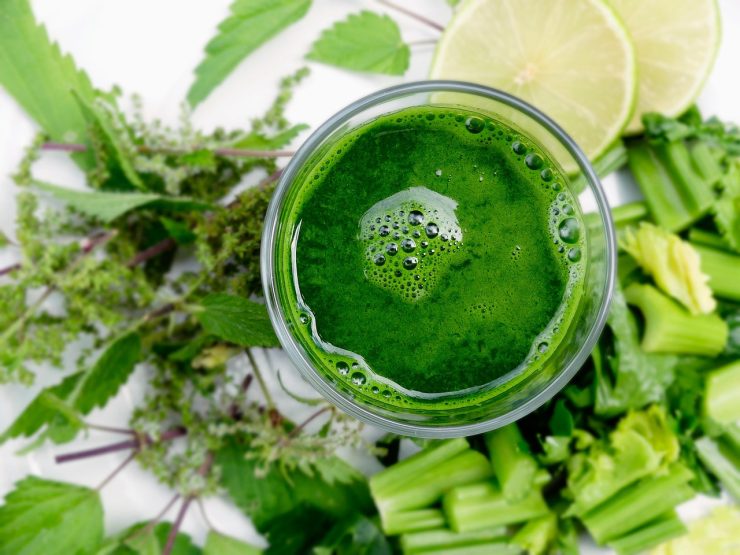Have you ever considered taking zinc to help prevent colds, the flu, or even COVID-19? If not, you might want to start adding it to your daily routine.
Zinc is a powerhouse mineral with a ton of benefits. Not only does it boost your immune system, but it also helps with wound healing, balancing hormones, supporting nerve function, and keeping your brain sharp. Plus, it plays a key role in cell growth, protecting your vision, and improving your sense of taste and smell.
On top of that, getting enough zinc helps maintain hormone balance, and even a small deficiency can increase your risk for things like infertility or diabetes. Zinc is actually one of the most abundant trace minerals in your body, and it’s involved in nearly every cell. It also helps protect your DNA during cell division and growth, which is pretty essential for your body to function properly.
Since our bodies can’t make zinc on their own, we need to get it from food or supplements. Some of the best sources include red meat (preferably grass-fed), oysters, lamb, chicken, eggs, chickpeas, nuts, and pumpkin seeds. Vegetarians and vegans, however, might have a harder time getting enough zinc if they’re not careful with their food choices.
Let’s dive into why zinc is so important:
1. Boosts Immune Function
Lately, you’ve probably heard a lot about zinc, especially since it’s known to help fight off viruses like the common cold, flu, and COVID-19. Zinc acts as both a preventive measure and a treatment when you’re already sick.
Studies have shown that people with low zinc levels tend to have worse outcomes when they get sick with something like COVID-19. They often experience more complications, longer hospital stays, and more respiratory issues. Zinc can reduce the chances of catching a cold and even speed up recovery when you’re already feeling sick.
How does zinc work? It helps prevent viruses from replicating inside your cells, reduces inflammation, and helps the body “remember” past infections, so it can fight off future ones. Zinc also plays a role in clearing up mucus and bacteria in the sinuses.
For zinc to be effective, it needs to get inside your cells. This requires something called an “ionophore,” which helps zinc cross the cell membrane. A supplement called quercetin, found in foods like red onions, apples, and green tea, works as a perfect partner to zinc. It helps zinc get into your cells and has antiviral properties of its own.
2. Supports Testosterone and Hormone Health
Zinc is essential for maintaining healthy testosterone levels in men, which is important for more than just sex drive. It also plays a role in muscle growth, bone strength, and overall health. Unfortunately, testosterone levels tend to drop as men age, which can lead to issues like erectile dysfunction and decreased strength. Low zinc levels can make this worse, especially for those who don’t eat meat.
In fact, studies have shown that when men don’t get enough zinc, their testosterone levels drop significantly. On the flip side, supplementing with zinc can help boost those levels back up.
Zinc also affects women’s hormones, especially when it comes to egg production and menstrual cycle regulation. A deficiency can lead to issues like irregular periods, miscarriage, or complications during pregnancy. So, getting enough zinc can help keep both men and women’s hormones balanced.
3. Helps Manage Diabetes
Zinc plays a role in managing diabetes because it helps with insulin function. Zinc helps insulin bind to its receptors, making it easier for your body to regulate blood sugar levels. It also helps improve the body’s use of glucose for energy rather than storing it as fat. Zinc can also support the function of enzymes involved in digestion, helping your body break down food more efficiently.
If you have diabetes or are at risk, zinc supplementation may help improve insulin sensitivity and reduce complications related to the condition.
4. Promotes Skin Health and Wound Healing
Zinc is essential for healthy skin. It promotes the growth of collagen, which helps repair tissues and prevent scars. That’s why zinc is often used for severe burns or slow-healing wounds. It also helps prevent infections, especially in the skin.
Zinc is also known to help with acne. It’s one of the best natural treatments for preventing breakouts and reducing inflammation in the skin. Plus, it’s helpful for conditions like eczema or diaper rash in babies.
5. Supports Brain Function
Zinc is crucial for brain health. It helps create neurons, which are responsible for sending signals throughout the brain and nervous system. These cells are essential for memory, learning, and overall brain function. Without enough zinc, forming and storing memories becomes harder.
Zinc also reduces inflammation in the brain, which can help clear up that “brain fog” that many people experience. It’s also involved in producing dopamine, the feel-good hormone that boosts focus and memory. Studies have shown that zinc supplementation can improve focus, reduce impulsivity, and even help with conditions like ADHD.
6. Zinc Deficiency
Zinc deficiencies are surprisingly common, especially in people who don’t eat meat. If you’re not getting enough zinc, you might notice issues like frequent colds, fatigue, trouble concentrating, and slow wound healing.
People with digestive issues or those who consume a lot of alcohol are also at risk for deficiency. If you’re concerned you’re not getting enough zinc, supplements can help, but make sure you’re not taking too much. Too much zinc can be toxic, so aim to keep your intake between 40-50 milligrams per day.
Conclusion
Zinc is an essential mineral that plays a vital role in many areas of your health. From boosting your immune system and improving hormone balance to supporting brain function and skin health, getting enough zinc can make a huge difference in how you feel. If you’re not getting enough from food, consider adding a supplement to your routine—but make sure to talk to a doctor if you’re unsure.











